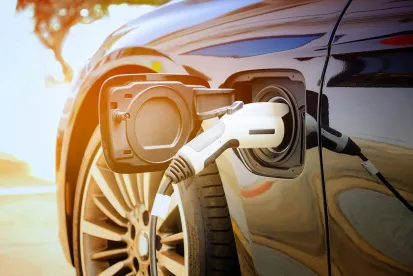In eagerly awaited, albeit non-precedential guidance, the IRS ruled in PLR 202413004 that “[t]he service provided by an EV Station is electricity.” With that, the IRS concluded that the amounts charged for the electricity consumed at the taxpayer’s EV charging stations, as well as increased rents for spaces including the amenity of EV charging stations, are qualifying rents from real property for purposes of the 75% and 95% gross income tests applicable to REITs. This result is consistent with the Administration’s general posture of favoring green energy initiatives.
In this ruling, the taxpayer plans to acquire and develop outdoor industrial equipment storage facilities (the “Properties”). The taxpayer will engage a third-party utility provider that is an independent contractor to provide tenants with utility services, such as furnishing electricity to light the Properties, to power and charge tenant equipment and to power EV charging stations. EV charging stations could be located either in storage areas leased by tenants or in parking areas. Storage areas with EV charging stations will be charged higher rents. Users of EV charging stations will be charged for the electricity they draw, and the taxpayer will remit the amounts collected to the utility provider. Taxpayer will not charge users an access fee to use EV charging stations and will not charge a markup on the electricity drawn from EV charging stations.
The taxpayer represented that it will install EV charging stations only at Properties where EV charging stations are customary at similar properties in the relevant geographic area, and that the number of EV charging stations at a particular Property will be appropriate for the number of tenants (and their guests and customers) who are expected to use that Property. The taxpayer further represented that while EV charging stations in the parking areas may be accessible by the general public, it expects any such use by the general public to be de minimis.
In reaching its conclusion, the IRS stated that “[t]he service provided by an EV Station is electricity” and that charging for electricity drawn from an EV charging station “by a Tenant or a Tenant’s guest or customer . . . is analogous to the submetering of utilities.” (emphasis added). Submetering of utilities is specifically identified as a customary service under Treasury regulation section 1.856-4(b)(1). Thus, the IRS concluded that the taxpayer’s income from EV charging stations as described in PLR 202413004 would not be treated as impermissible tenant services income (ITSI) and would instead be treated as qualifying rents from real property for the 75% and 95% gross income tests applicable to REITs.
We note that the taxpayer in this ruling represented that it would not charge a markup on electricity drawn from EV charging stations. In other PLRs dealing with electricity outside of the EV charging station context, the IRS has approved markups on electricity. We further note that the taxpayer in this ruling represented that it expected use of its EV charging stations by the general public to be de minimis and that the number of EV charging stations would be “appropriate” for the number of tenants expected to use the property. The concept of limiting the size of an amenity to what is “appropriate” for tenants and their guests or customers is one seen in Revenue Ruling 2004-24, dealing with parking. Based on the taxpayer’s representations, the IRS did not address whether EV charging stations targeted at or expected to be used by the public would also produce qualifying rents, but it is possible that a different analysis could apply on those facts.









 />i
/>i
